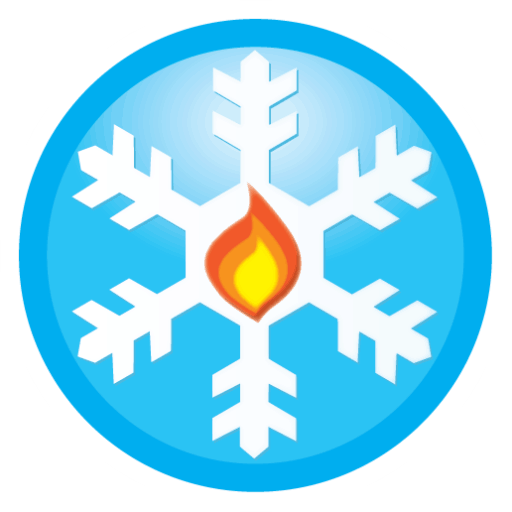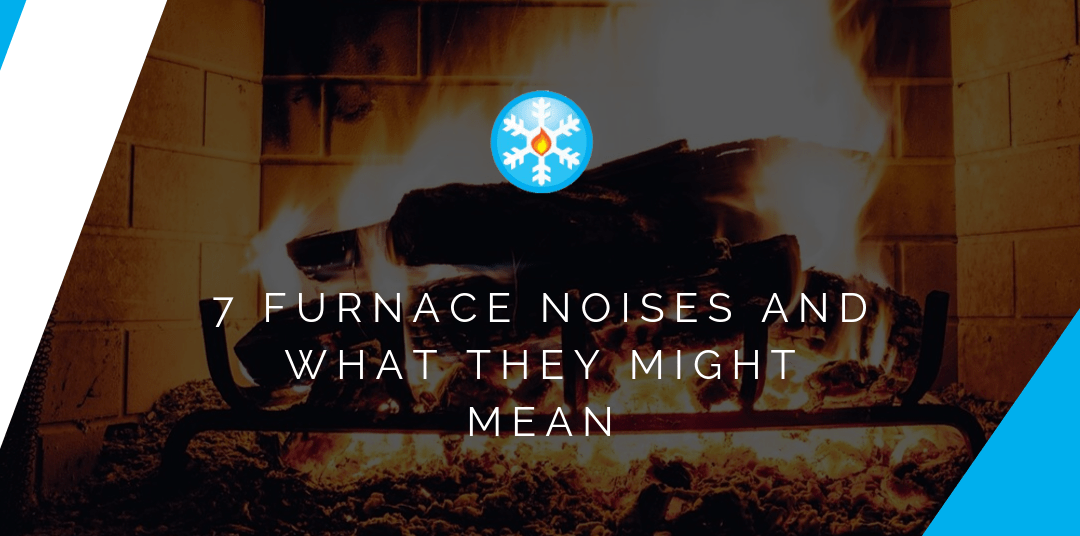Most of the time we don’t notice our furnace until something goes wrong. We count on it to keep us warm and comfortable, and then are surprised when something interrupts that. Noises coming from your furnace can be the first sign that there may be a problem. Pay close attention and describe these sounds to your Meridian, ID HVAC specialist to help them diagnose the potential problem. The following are some of the sounds you should be listening for and what they might mean.
Common Furnace Noises
Here are the sounds to watch for and what they indicate:
Booms, Pops, or Bangs
Booms, bangs, thuds, etc. are quite common when units are turning on. Often this means that the burner is having a hard time reaching optimal temperature. This allows fuel to build up in the unit. When it finally gets hot enough, it will combust the excess fuel quickly and create those loud pops and bangs. Another possibility might be that your ducts are expanding or contracting during very cold weather.
Rattles and Rumbles
Rattling sounds may indicate loose debris or ductwork within the system. They could also be a sign of a broken fan blade. If the sound is more of a rumble, you may have build-up on the heating element or a leak with the heat exchanger, which should be checked out ASAP.
Grinding
A grinding sound may indicate that the air handler motor is under stress, and the bearings need to be replaced to reduce the friction. If this problem goes untreated, the heater eventually won’t turn on at all.
Clicking
Hearing clicking sounds could be a problem between the ignition and the gas and should be checked out immediately. It could also be from a faulty flame sensor.
Screeching or Squealing
Squealing sounds are often caused by a faulty or broken fan motor or a worn out belt. Screeching can also mean that the bearings need to be replaced or lubricated. These are common furnace problems and can be helped by regular furnace tune-ups.
Whistling
If you hear a continuous whistling sound, it is likely that you have a clog in your air filter or your air intake. Help prevent air filter problems by enrolling in our worry free filter program. Whistling could also mean your ductwork is loose and air is escaping out of it.
Short Cycling
Short cycling means that your heater is turning on and often frequently. This is caused when heat is trapped in the furnace, and the excess heat causes the system to shut down before your home is heated properly.
This can be an electrical issue, a clogged filter, or perhaps a problematic air handler. Another sign of this problem is when your heater blows cold air.
Benefits Of A Heater Tune-Up In the Fall
A heater tune-up every autumn will got a long way toward avoiding expensive repairs and saving you money on utility bills. With a tune-up, an HVAC tech cleans and inspects your entire system and makes any repairs before you start using the system for the season.
A smooth-running furnace uses less gas or electricity, reducing your bills. And, they last longer, so you’ll go a few more years before having to invest in a new system.
Furnace Repair In Meridian, ID
If you are hearing any of these noises on a regular basis, you should get them checked out by an HVAC technician. Getting the problem fixed early may save you money in the long run and prolong the life of your HVAC system. Contact Snowflake Air for all of your Meridian, ID heating and cooling needs.





Trackbacks/Pingbacks